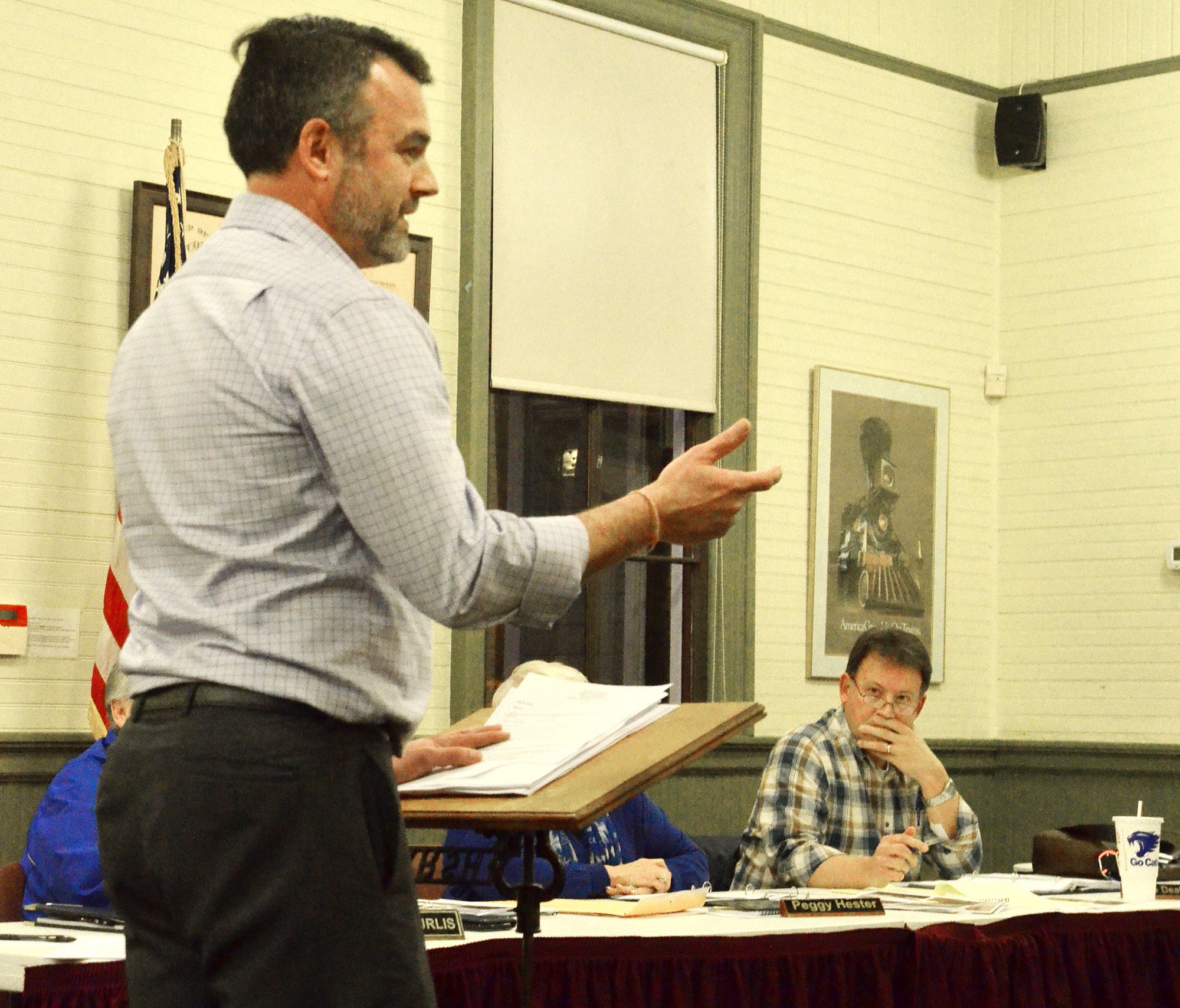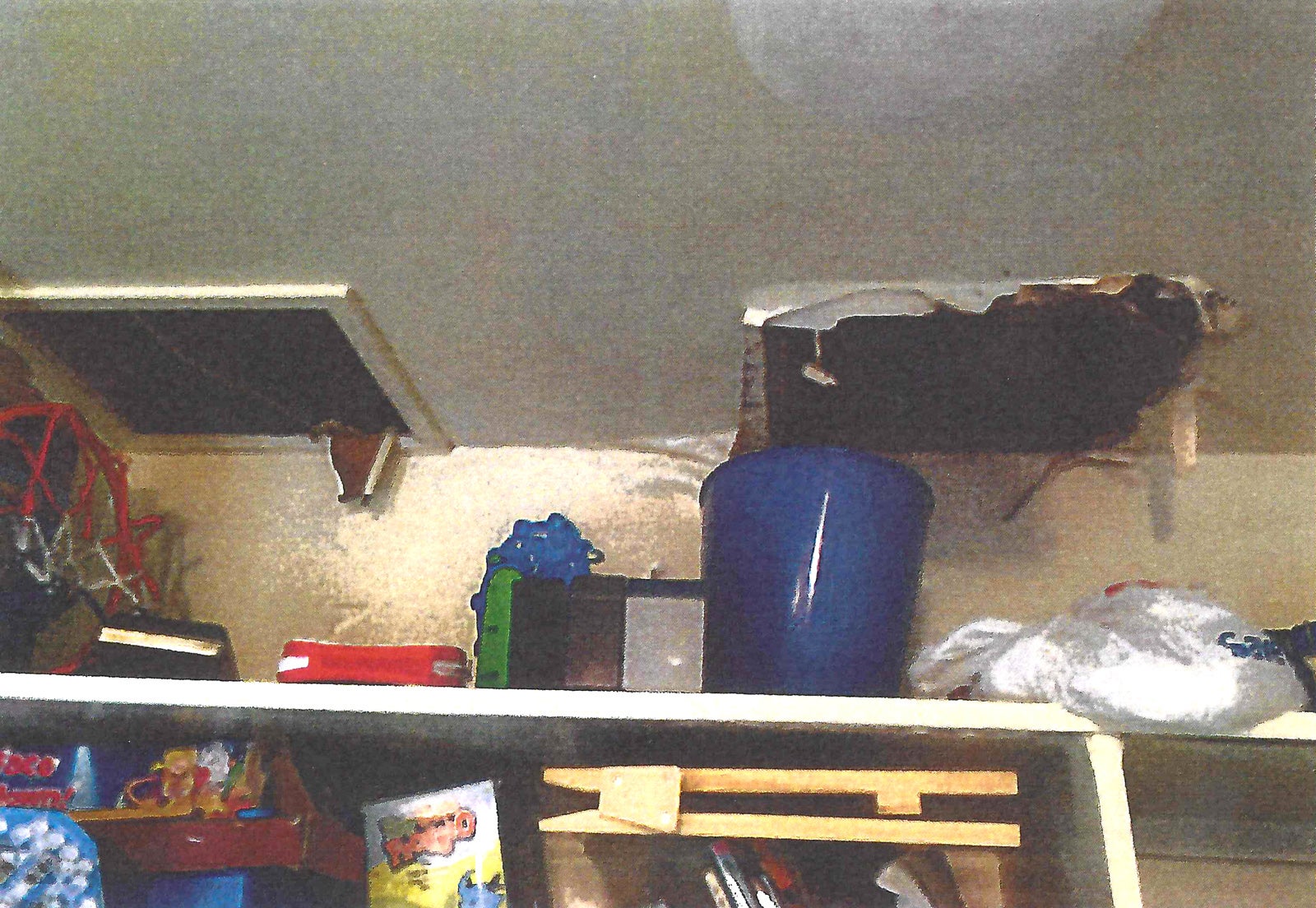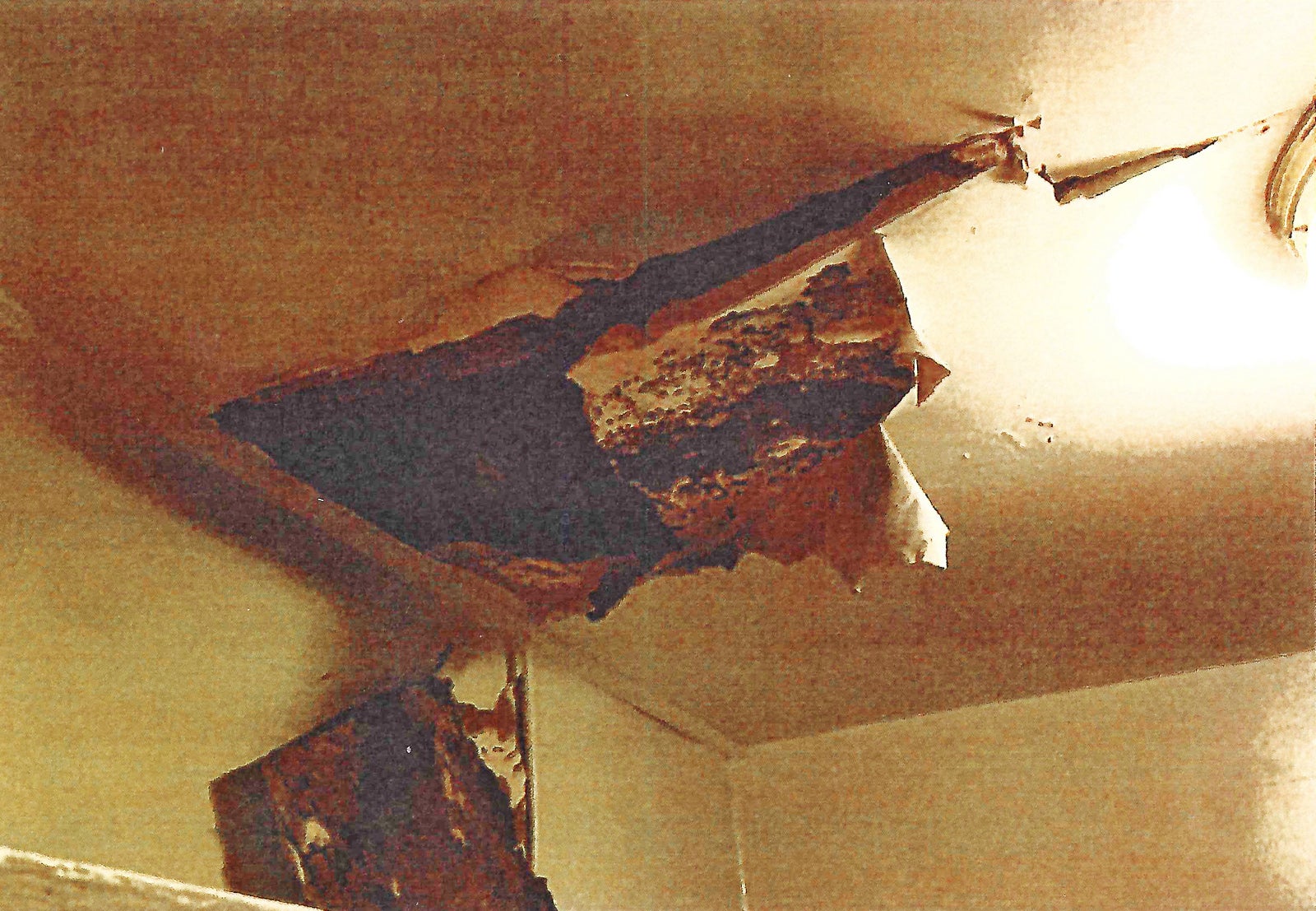Housing Authority seeks waiver of portion of annual payment to city
Published 11:18 am Thursday, February 14, 2019
STANFORD — Tim Kitts, executive director for the Danville Housing Authority, made a plea with the Stanford City Council Thursday to waive the annual PILOT Tax payment to the city for 2016 and 2017 so the agency will have enough money to make repairs on the Stanford Housing Authority property.
The council agreed to Kitts’ request — but only on the condition that the Danville Housing Authority continue to manage the Stanford low-income housing development.
The Stanford Housing Authority property, located off Lacy Street, provides housing for low-income families. The PILOT Tax, or payment in lieu of taxes, is paid instead of property taxes and affords the property the same services provided to other city residents, i.e. police service, fire service.
The property, a 50-unit public housing complex under the Stanford Housing Authority (SHA), had grown into a severe case of disrepair over the years and, after the death of former SHA executive director Lucy Embry in August of 2018, Housing and Urban Development (HUD) asked the Danville Housing Authority to oversee the property.
“Lucy was basically a one-man show. It was her, a part-time receptionist and a full-time maintenance person to take care of those 50 units,” said Kitts. “When she passed away, HUD asked us at Danville Housing Authority to come in and do a management agreement because nothing had been put in place to transition Ms. Embry. So we agreed to do that. We’re just a few miles away and we’re a larger agency with the staff capable of doing that.”
It was after the Danville Housing Authority took over the property that the deteriorating condition of many of the apartment units was uncovered.
“Once we came in and started doing an assessment of the property, assessment of the financials and everything in between, we started really uncovering some things that were kind of scary, especially when you know that people are living in some of those conditions,” said Kitts.
Kitts passed out photos showing just some of the damage found in the units during the assessment, including holes in floors and ceilings, some of which you could see through to the space below or above.
“And at least one or two front door jambs had been kicked in,” Kitts said. “We had residents living in units where someone could just walk up and open the door. There was no way to lock the doors.”
Kitts said the photos were “just a tip of the iceberg … Since August, our maintenance staff has been coming over and trying to repair units” to get families out of unsafe units.
Council member Ronnie Deatherage asked whether the residents were responsible for the damage.
“A lot of the issue that we’re finding has been from water leak issues,” Kitts said, explaining that a water leak “over a period of time” led to a lot of damage.
“What about the door jamb?” asked Deatherage.
“That would be a tenant,” Kitts answered.
“So are they responsible for paying for that?” said Deatherage.
Kitts responded, “They are. Yes.”
“Through maintenance, is there a monthly inspection of these units? Is there no oversight?” Councilwoman Peggy Hester asked.
Kitts said since Danville Housing Authority began managing the units, there have been monthly filter checkups and smoke alarm tests. Maintenance workers check for other possible damage or issues while they’re there for the monthly checks, and every unit is also subject to an annual inspection.
“You’ve probably not found inspection reports where they (Stanford Housing Authority) have done any inspections, even yearly inspections,” Deatherage said.
“No,” Kitts said.
Council member Naren James asked Kitts if he was saying the Stanford Housing Authority “has not been following what it should have been doing?”
Kitts said the Danville Housing Authority inspections resulted in several of the units being vacated for safety reasons.
“Right now we have eight vacant units that we have completely taken offline that are in dire need of repairs. We’ve moved those tenants out,” said Kitts.
The Stanford Housing Authority receives an operating subsidy from HUD after it receives tenant payments. It also receives a capital fund that is strictly used for building projects, such as replacing roofs and other major repair projects.
But in Stanford’s case, Kitts said, the housing authority opted to roll its capital projects funding into its operating budget to pay for staff.
“So that takes away from being able to do those capital fund projects,” he said.
Kitts stressed to the Council that the property is in need of any extra money for capital projects.
“Housing agencies get penalized if they fall below 97 percent occupancy rate. So, as you well know, 10 vacant units out of 50 is a lot (lower) than 97-percent occupancy rate,” he said.
Some, but not all, of the eight units now vacant were occupied before the Danville Housing Authority got there.
Financial records
As the Danville Housing Authority continued to pick through the local housing authority’s financials, they discovered a few significant oversights.
No audit had been done in three years, even though HUD requires annual audits. So the Danville Housing Authority had an auditor come in and do an audit two weeks ago, Kitts said. The auditor found two issues:
• The Stanford Housing Authority board had not met the minimum number of times per year as required by law; and
• The housing authority had not made its PILOT payments to the City of Stanford for 2016, 2017 or 2018.
Kitts said the housing authority board had met five times in three years; the law requires “I think, four meetings a year.”
The Housing Authority Board consists of five commissioners, including the Stanford Mayor, who appoints the board.
Kitts explained that PILOT payments are supposed to be made because the housing authority property is federally owned and thus tax-exempt. The PILOT payments are calculated so that the housing authority pays Stanford like a “normal resident” would for its property, in order to pay for its share of services such as police and fire.
“When we discovered that three years had not been paid, I made a call to Mayor (Scottie) Ernst and set up a meeting to talk to him about that,” Kitts said. “Here’s the thing with PILOT taxes. If you look across the state of Kentucky, and even across the country, there are a lot of cities that work out deals with housing authorities to waive the PILOT Tax. It can be put back in to do community projects, like afterschool programs. There are housing authorities that do home ownership programs and use those funds. There are multiple things that different housing authorities use that money for.”
Kitts had three proposals for the council to consider:
• waive the PILOT for 2016 and 2017, and set up a payment plan whereby the housing authority would pay back its 2018 PILOT in monthly installments;
• waive the PILOT for 2016 and set up a payment plan for the 2017 and 2018 PILOTs; or
• require full payment and set up a payment plan for all three unpaid years.
Kitts said the housing authority does not have a lot of cash on hand; if the city were to require full payment of all three years immediately, “it would basically shut down our office for a period of time.”
“What if you had a different scenario?” council member Dalton Miller asked. “What if you had two years before you had to start paying on this? That way you’d have two years to bring all your units back into check. If you had two years and then you had a four-year or six-year period to pay it back, would that help your financial situation?”
“It would for the short term but I don’t know for long term,” Kitts said. “I do know that within the next two to five years, some buildings are going to need roof repairs and air conditioner replacement. Buildings aren’t getting any younger. They were all built in early 70’s … The more age it gets, the harder it is to keep up.”
“The only thing that bothers me about waiving the tax is, if I don’t pay my taxes, I don’t think the city’s going to waive what I owe,” Miller continued. “And it’s no offense to you. I appreciate your honesty. Most people wouldn’t even have come forward. They would have paid 2019 and acted like nothing happened. Your honesty carries a lot with me.”
Council member Peggy Hester asked if Kitts was in favor of Stanford waiving two years of the PILOTs; Kitts said yes. If those payments don’t have to be made, it means money can go into fixing the physical problems on the property instead.
“We’re going to get these units back to where they need to be and the forgiveness part just allows us to do it a little bit quicker,” he said.
Hester made a motion to approve waiving the 2016 and 2017 PILOTs.
During discussion, Mayor Ernst said, “I appreciate his honesty and whatever you the council wants to do. It is a tax due us, just named differently. But if we have a property owner and they owe the city, we’d like to have that property tax as well.”
“That’s basically what I voiced a while ago,” Miller interjected. “I think there are other options than the three that was presented here tonight that I’m sure could benefit us all over the long haul.”
James said he supported Hester’s motion and believed the council “should take some responsibility,” considering the city’s partial role in not participating in the required number of housing authority board meetings.
“And, number two, I think it frees you up to get those properties occupied and not get in a cash flow situation,” James said.
Miller, who along with the rest of the council had listened to Stanford Police Chief Zach Middleton say they needed to move a part-time officer to full-time, voiced concern that the council hadn’t budgeted the extra money for that move but considered waiving the taxes.
“That’s not going to lessen the number of police calls that the Chief and the officers respond to,” he said. “And the number of fire calls that are responded to because of smoke alarms because they are going to call us and we’re going to call maintenance.”
Kitts said he has talked to Middleton and offered to provide one of the housing authority’s units for free for a police officer to live in.
“You can imagine how much cleaner a property can be when there’s a police car on site day-in and day-out,” he said. “It does wonders. It would be a benefit to the city because that would be rent-free for that individual.”
Ernst asked for input on the issue of fire service from Stanford Fire Chief Scott Maples.
“In 2016, 2017 and 2018, the fire department alone has made 48 gas leaks (calls) due to faulty equipment in those apartments,” Maples said. “And a lot of those, probably half of them, have been dangerous situations where there were explosion levels. We had to evacuate two buildings at a time because the explosion levels were that high. It’s been some pretty hairy situations. That many calls, that’s at least $6,000 just on fire department going on calls.”
Deatherage said he hopes the the round-the-clock maintenance that the Danville Housing Authority provides will help reduce those numbers.
“They have eight maintenance people working around the clock, so hopefully those calls will decrease,” he said.
Deatherage, Ernst and Councilwoman Ella Mae Curlis had visited the Stanford Housing Authority property prior to Thursday’s meeting and seen the work that’s been done so far on some of the units.
“(We) visited the property and were impressed with the changes,” he said. “I was impressed with what you guys have done, and I know it’s going to take time. One of the things I tried to stress to that commission was to go ahead and continue to contract with you guys as opposed to hiring their own director, their own maintenance person, or their own secretary, treasurer or bill person or whatever. To continue with Tim and the Danville Housing Authority so that we can get that unit back up to snuff. It’s what we want. We would be proud of that.”
“That’s why I’m in favor of some forgiveness,” Hester said. “There’s a lot more involved here than just tax. There’s a lot of maintenance, future upkeep and just a program to get it on track and keep it that way.”
As the motion neared a vote, Miller spoke up once again.
“I personally, myself, I’m not prepared to vote on this tonight until I hear if the Danville Housing Authority is going to keep this. Because the last thing I’d want to do is say, ‘Yeah, let’s forgive two years,’ and then Danville Housing Authority says, “No, we’re not going to continue doing what we’re doing. They’re going to hire their own.’ So I would like to know more information from Danville,” he said. “I want to see what the Housing Authority plans to do.”
Kitts said that the Danville Housing Authority had a management agreement through May and that the Board asked them to put feelers out for an executive director. Advertisements were run in The Interior Journal and The Advocate-Messenger and posted on websites related to housing authorities.
“We saw what we had. We have nothing to do with selecting who they go with,” Deatherage said. “If I had my preference we would continue with what we’re doing.”
The roll call vote on Hester’s motion resulted in a 3-3 tie. Sara Givens, Hester and James all voted yes and Curlis, Deatherage and Miller voted no. Ernst broke the tie with a no vote, killing the motion.
That opened the floor for a new motion, which had a contingency attached.
“I make a motion where we go with plan one where we waive the two — 2016 and 2017 — and he makes the payments for 2018 under the contingency that Danville Housing Authority remains as director,” Curlis said.
This time the motion passed, with Curlis, Givens, Hester and James all voting yes, while Deatherage and Miller voted no.










